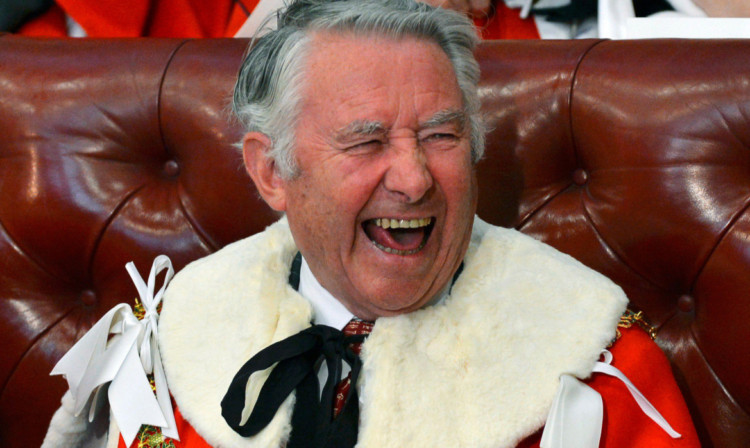
Labour leader Ed Miliband may have had a tricky summer but now it’s Nick Clegg’s turn.
One of his most senior party grandees has blasted the Lib Dem leader as “an innocent abroad”, claimed the Coalition has “gone off the rails” and accused the Deputy Prime Minister of failing to understand his Cabinet Office brief.
In an interview to mark 25 years since the Liberal Democrats were formed, David Steel, now Lord Steel, is scathing about the party he helped to set up.
He said: “The Liberal Democrats currently tend to date everything from that period as if there was nothing before the last 25 years. There’s not much knowledge of the pre-history, which is quite sad in a way.”
The Liberal Democrats were formed when Steel’s Liberal party merged with David Owen’s SDP, closing the book on centuries of Liberal Party history.
Lord Steel added: “I don’t regret being the last Liberal leader.
“The jump that we made from being the remnants of the once great party of government to the start of something new was a very difficult transition but an essential one if the party was to grow, and it has grown.”
Paddy Ashdown was the first leader of the new party. They gained seats at every election since until 2010 when Nick Clegg lost a few seats but took the party into Government for the first time as part of the Coalition.
Despite his history of working with other parties he formed a parliamentary pact with Labour in the 1970s Lord Steel seems unsure of the value of the current Coalition.
He explained: “Where I think it’s gone slightly off the rails is the about-turn on student fees because that was something we’d campaigned on.
“It’s not that the issue itself is all that important to the general public, but going back on it meant a loss of trust.”
He’s also unimpressed with Danny Alexander’s recent review of the options for the future of Trident that took the party from an inherent opposition to nuclear weapons to proposing keeping Trident but with fewer submarines.
He added: “That’s a very unhappy compromise that dents the purity of what we had before.”
But Steel, who has clocked up nearly 50 years in politics in the Commons, Lords and as the first Presiding Officer when the Scottish Parliament reconvened in 1999, is most scathing about the issue of House of Lords reform.
Last summer Clegg shunned a limited Lords reform bill proposed by Steel to go all out for an elected upper chamber. Clegg’s legislation failed when the Tories refused to back it but Steel’s statute which would slash the number of peers by kicking out those convicted of an offence, those who don’t turn up and forcing the really elderly to retire has now been resurrected as a backbench bill in the Commons by Tory MP Dan Byles.
As Deputy PM Clegg has special responsibility for political and constitutional reform.
Lord Steel said: “My complaint is that he didn’t know his history and he doesn’t really ‘do’ the constitution.
“He’s brilliant on Europe and the economy and all these things, but when it comes to the constitution he’s an innocent abroad.
“It was easily foreseen that this would flounder and great angst was expressed when it did flounder but the fact remains you could have seen it coming.”
He admits to having had rows with Clegg over the issue and, though he claims the two have got over their differences, now his failure to endorse Clegg enthusiastically is striking.
Asked if Clegg will lead the Lib Dems into the 2015 election Steel said: “I assume so.”
And will he lead the party after 2015? “You’ll have to ask him.”
The one outcome of the next election that will likely ensure Clegg stays in post is Steel’s least-favoured option another coalition with the Tories.
He said: “I’d hope after the next election that either we gain our independence as a party or we have a bigger say in a coalition, possibly a more natural one with a reformed Labour party.”

Enjoy the convenience of having The Sunday Post delivered as a digital ePaper straight to your smartphone, tablet or computer.
Subscribe for only £5.49 a month and enjoy all the benefits of the printed paper as a digital replica.
Subscribe